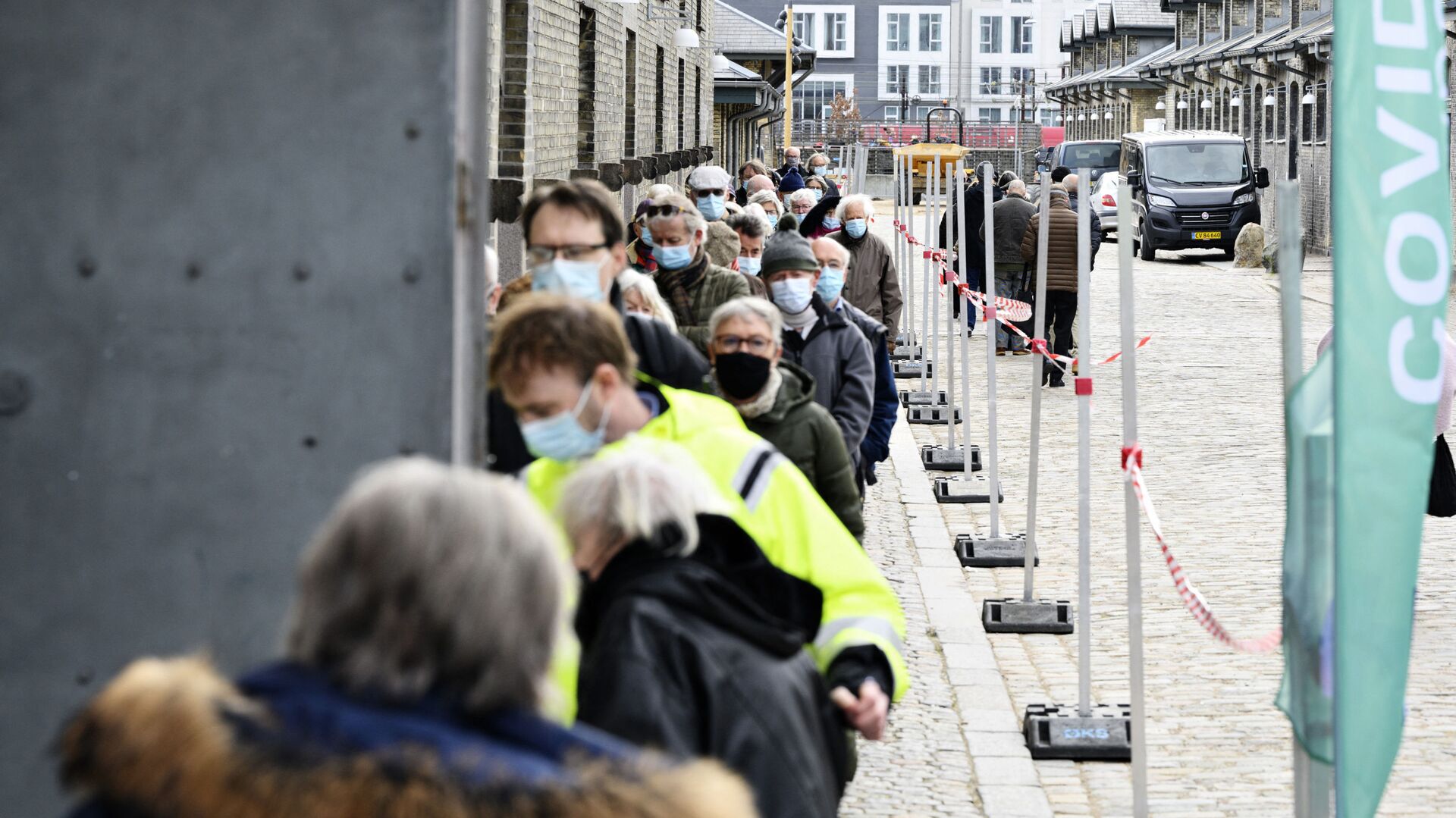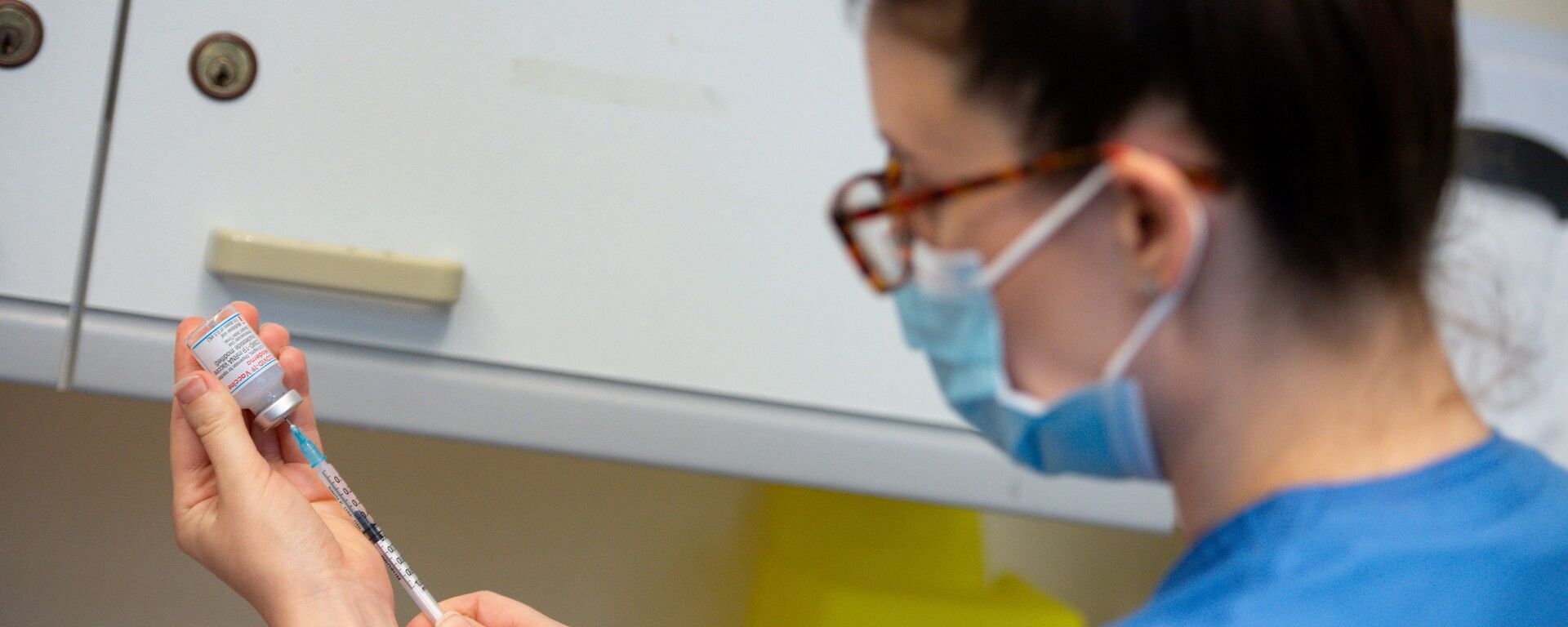Hopes of Herd Immunity Resurrected as Denmark Ravaged by Omicron Strain
06:47 GMT 25.01.2022 (Updated: 06:58 GMT 25.01.2022)

© AFP 2023 / PHILIP DAVALI
Subscribe
Previously, Denmark proclaimed during the Delta wave that herd immunity was unattainable, meaning that COVID-19 could continue to circulate for years to come. Several other countries, including neighbouring Sweden, abandoned theirr hopes of building up population immunity as well.
The Danish infection control agency, the State Serum Institute (SSI), has argued that the COVID-swept Scandinavian country will achieve so-called population immunity against the coronavirus within the next few weeks, an idea previously discarded by the very same medical professionals.
Remarkably, barely a year ago, the SSI said that the then-dominant Delta variant had killed the hope of herd immunity “once and for all”.
According to Danish medical experts, Denmark is currently seeing a record COVID-19 spread since the start of the pandemic, but also has extensive vaccine coverage. This in turn will lead to a drop in infection rates because it will be more difficult for the coronavirus to find people to “bite on”, they said.
The immunity is expected to coincide with a marked decline in the spread of infection awaited during spring and summer following the current peak. At the same time, Denmark's chief epidemiologist Tyra Grove Krause warned that population or herd immunity is not permanent, as neither vaccines nor infection provide lifelong immunity.
“This means that the virus doesn't disappear but can create new waves, when there are enough people who can become infected, and when the conditions for the spread of infection are better, for example during the winter,” Grove Krause told TV2.
The SSI also reckoned that new variants may spring up that the Danes have less protection against.
As of now, a substrain of Omicron, called BA.2, is spreading rapidly and already accounts for more than half of all cases. It remains unclear to what extent those previously infected with the BA.1 substrain are protected against the newer one.
Jan Pravsgaard Christensen, professor of immunology at the University of Copenhagen, said that herd immunity is important for development of the situation during the rest of the year.
“Even if the virus goes dormant due to the weather, it will go even more dormant because it is difficult to survive in a very immune population. It also means that the autumn and winter months will start at a lower level,” Pravsgaard Christensen told TV2.
As of now, a substrain of Omicron, called BA.2, is spreading rapidly and already accounts for more than half of all cases. It remains unclear to what extent those previously infected with the BA.1 substrain are protected against the newer one.
Jan Pravsgaard Christensen, professor of immunology at the University of Copenhagen, said that herd immunity is important for development of the situation during the rest of the year.
“Even if the virus goes dormant due to the weather, it will go even more dormant because it is difficult to survive in a very immune population. It also means that the autumn and winter months will start at a lower level,” Pravsgaard Christensen told TV2.
Earlier this month, chief epidemiologist Tyra Grove Krause made a bold prediction that the COVID-19 pandemic may be over in her country in just two months – following a massive spread of infection due to the Omicron strain. Citing a new SSI study, she said that the more infectious but less serious Omicron leads to only half the hospitalisations compared with the previously dominant Delta strain.
At the same time, Denmark has seen towering infection rates that have put the country's healthcare system under increasing strain. The country's daily case count has risen by more than two orders of magnitude from the low 200s in September, when Copenhagen abolished restrictions and demoted COVID-19 from being a “society-critical” disease, to over 40,000 in recent days.
At the earlier stages of the pandemic, the idea of herd immunity has been tested in neighbouring Sweden, which opted for a no-lockdown, no-mask approach in a bid to build up natural protection among the population. However, Anders Tegnell, its state epidemiologist and chief architect of the country's COVID-19 strategy, later admitted that the level of immunity which Sweden assumed was needed to control the virus was unattainable, instead opting for restrictions. Subsequently, a high enough vaccination level was proclaimed the only way out of the pandemic, however the goalposts have been constantly shifting with the percentage of those vaccinated and the number of shots needed.




